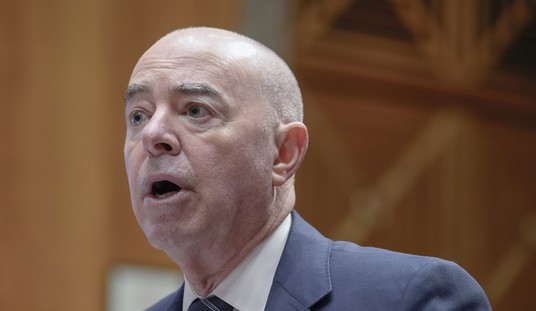When construction company executive Wei Wenhua witnessed a newsworthy event, he did what most of us would do: He took out his cell phone and filmed it.
On Jan. 7, villagers in Wanba, China, were protesting government officials dumping truckloads of waste next to their homes. Municipal officers known as “chengguan” scuffled with residents trying to prevent the dumping, and Wei began filming.
When the dozens of chengguan noticed Wei, they beat him to death.
Eager to tamp down public anger over the brutal murder, the Chinese regime fired the local urban administration bureau chief and arrested some of the chengguan — yet in a sign that nothing really changes in the People’s Republic, authorities deleted the cell phone video.
And the fact that the officials were dumping garbage on some poor villagers takes on extra meaning as the Chinese regime is undertaking a bit of pre-Olympic housecleaning.
After all, they can’t have people swarming into the Beijing Summer Olympics and realize the truth about China, mucking the already tarnished image of a government that has long dreamed of such a global spotlight.
“As negative exposure will damage the government’s image, the government has been trying to ‘clean’ the voices,” Boxun News founder Watson Meng said. “That is why human rights and press freedom have not been improved.”
This year already, China’s housecleaning has included slapping unprecedented censorship on Web media. “Those who provide Internet audio and video services must serve socialist ideals and the Chinese people,” the government said about the rules to go into effect Jan. 31.
And last week, the propaganda department announced a crackdown on unapproved political publications — and, to make the effort look somehow gallant, porn — under the guise of “defending socialist culture.” Liu Yunshan, head of the Publicity Department of the CPC Central Committee, said that “unswerving efforts should be made to … fight various illegal publications so as to maintain a sound cultural environment.”
And remember the 33 journalists behind bars in China, which also holds 51 of the 64 known imprisoned cyberdissidents in the world and fields some 30,000 Internet cops.
“China is still failing to honour the promises it made when bidding for the Olympics, to improve human rights,” Amnesty International UK Director Kate Allen said. “It still locks up dissidents, shuts down opposition Web sites and executes more people every year than the rest of the world put together.”
The issue of human rights should transcend partisanship. Urging a boycott of the Beijing games, the right and left — Reps. Dana Rohrabacher and Maxine Waters — came together with their respective resolutions calling for human rights to come first. Both also voted against permanent normal trade with China in 2001.
But The Hill reported in October that their fellow lawmakers, right and left, just tiptoed around the measures. “It’s clear that a lot of members of Congress are making decisions on fundamentally moral issues based on a desire not to upset a very powerful force in the world,” Rohrabacher said.
When it comes to presidential politics, the tiptoes are only slightly more audible. Bill Richardson floated the idea of an Olympic boycott in a summertime debate and John Edwards signaled his support, an idea then dissed by Chris Dodd. In later discussions, the B-word was pared down to “every option.”
Or sometimes the tiptoes have turned to stomping on the boycott idea. After Richardson’s remarks, a spokesman for Mitt Romney — the candidate who has touted his leadership of the Salt Lake City games as credentials to lead the country — panned depriving Beijing of its glory moment. “Governor Romney believes it would be a mistake to punish our athletes,” said spokesman Eric Fehrnstrom. “It didn’t accomplish anything when Jimmy Carter tried it, and it won’t accomplish anything now.”
Disappointingly, President Bush accepted an invitation from Chinese President Hu Jintao to attend the Beijing Olympics. But what I’d love to see from the presidential contenders is some principled backbone to say that they, as president, would decline the invitation, that they would give serious consideration to the efforts of Rohrbacher and Waters, that they would not tip their hats to a regime that continues to violate human rights in such egregious manners.
How far will our candidates go to help those like Wei Wenhua?
Are they still of the mind that China will magically change its ways by means of greater inclusion in the global community, or are they troubled that China has thumbed its nose at the hollow promises made to the International Olympic Committee to be granted the games in the first place?
Will any of them dare to back the B-word?
Bridget Johnson (www.bridgetjohnson.org) is a columnist at the Los Angeles Daily News.









Join the conversation as a VIP Member